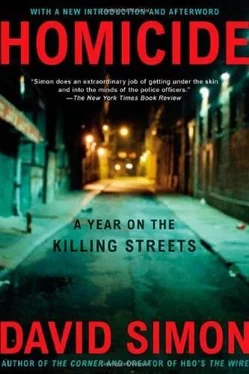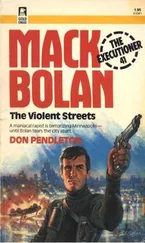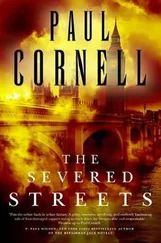Worden lights another Backwoods and leans back against the green bulkhead, thinking that the joke is both funny and unfunny.
Three weeks ago, the officer who discovered the body of John Randolph Scott in the alley off Monroe Street went before the same grand jury and refused to answer any questions about the unexplained death of a man whom he had been pursuing. Sergeant John Wiley read a brief statement to the grand jury, complaining about having been treated like a suspect in the murder, then invoked his Fifth Amendment right against self-incrimination. Wiley was not offered immunity by the prosecutors and he subsequently walked out of the grand jury, effectively sending the Monroe Street investigation into a long, final stall. In the absence of any other definitive evidence, Tim Doory, the lead prosecutor, did not ask the grand jury for any indictment. In fact, Doory had to do some fast talking to keep the grand jurors from issuing any indictments; after hearing Worden and James testify about the contradictory statements made by officers involved in the pursuit of John Scott, several members of the panel were more than ready to hand up a charge until Doory convinced them that the case could not be successfully prosecuted. Indict it now and we’ll lose it on the merits, he told them. And then, even if we get fresh evidence a year from now, we’ve played our hand. Double jeopardy says a man can’t be tried twice for the same crime.
Doory’s speech effectively closed the Monroe Street investigation, leaving both Worden and James with a bad taste. Doory was a good lawyer, a careful prosecutor, but both detectives were tempted to second-guess the decision not to indict: “If the suspect was Joe the Rag Man,” James declared at one point, “he’d have been charged.”
Instead, the Monroe Street investigation was consigned to a separate file drawer in the admin lieutenant’s office-a burial apart from the other open cases, an interment that befitted the only unsolved police-involved shooting in the department’s history.
After months of work, that outcome was hard enough for Worden to swallow. And on the board, meanwhile, the names of two March murder victims were still written in red next to Worden’s initial. Sylvester Merriman waited for the Big Man to find that missing witness, the teenage runaway from the group home; Dwayne Dickerson waited for Worden to shake something loose from the neighborhood around Ellamont Avenue. And for the rest of this week as well, McLarney’s squad would be working a midnight shift, virtually assuring Worden that he would catch a fresh one before Saturday. The last six months had left him with a full, heaping plate of bone and gristle. Yet the city of Baltimore was paying him unlimited OT to chew on a wounded politician’s leg.
“I’ll tell you this,” the Big Man tells Rick James in between bites of the sandwich. “This is the last time I let myself be used. I’m not here to do their dirty work.”
James says nothing.
“I don’t give a damn about Larry Young, but you give a man your word…”
Worden’s word. It was a rock in the Northwest District, and it was good as gold when he was back in the old escape and apprehension unit. Hell, if you found yourself in a room with a CID robbery detective by the name of Worden, you took anything said to you there as fact. But this was the homicide unit-land of the forgotten promise-and Worden is again being made to understand that at any given moment, the bosses own the rulebook.
“No matter what happens,” he tells James, blowing cigar smoke toward the window. “They can’t take your EOD away from you.”
James nods; the comment is anything but a non sequitur. Worden’s Entrance On Duty date is 1962. He’s got the mandatory twenty-five plus one for good measure; Worden can go out on a full pension in the time it takes to type up the forms.
“I can always make money building decks and putting up drywall…”
The last natural police detective in America slinging spackle. It’s a depressing image, and James says nothing.
“… or delivering furs. There’s a lot of money in furs.”
Worden finishes breakfast with another cup of black coffee, followed by another cigar. Then he cleans the desk and waits for the 9:00 A.M. shift at the courthouse in cold, empty silence.
WEDNESDAY, JUNE 29
Fred Ceruti knows it’s a bad one when he turns the corner on Whittier and sees the ambulance. Time of call was 0343 and that was a half an hour ago, he calculates, so what the hell is the guy still doing in the ambo?
The detective edges the Cavalier up behind the red glow of the medic unit’s emergency lights, then stares for a moment at the frenzied paramedics in the rear of the ambulance. Standing on the ambo’s rear running board, a Western uniform looks back at Ceruti and gives a quick thumb’s down.
“He don’t look so hot,” says the uniform as Ceruti gets out of his car and steps toward the red strobes. “They’ve been here twenty minutes and he still ain’t stable.”
“Where’s he hit?”
“Head shot. One in the arm too.”
The victim is writhing on his litter, moaning, with his legs buckling back and forth in slow repetition-outward at the knees, inward at the toes-an involuntary movement that tells a homicide detective to post the vacancy sign. When a head-shot victim starts dancing on his ambo litter-“doing the Funky Chicken,” Jay Landsman calls it-you can write it down as a murder.
Ceruti watches the paramedics struggle as they begin working a pair of pressure pants around the victim’s legs. Fully inflated with air, the device greatly constricts blood flow to the lower extremities, thereby maintaining blood pressure in the head and torso. In Ceruti’s mind, the pressure pants are as much of a threat as anything else; the damn things can keep a man alive until he arrives at an emergency room, but the trauma team eventually has to deflate those bad boys, and at that point, blood pressure takes a nose dive and all hell breaks loose.
“Where’s he going?” Ceruti asks.
“Shock-Trauma, if we can stabilize him,” says the ambo driver. “But I mean, shit, we haven’t been able to get him leveled out.”
Ceruti looks up and down Whittier Avenue and reads the scene like a short grocery list. Dark side street. Ambush. No witnesses. No physical evidence. Probable drug murder. Don’t die on me, you bastard. Don’t you dare go and die on me.
“Are you the first officer?”
“Yeah. Seven-A-thirty-four unit.”
Ceruti begins collecting the particulars in his notebook, then follows the uniform to an alleyway between the rowhouses at 2300 and 2302.
“We got the call as shots fired and found him lying right there, head to the wall. He still had this in his waistband when we rolled him.”
The patrolman holds up a.38 five-shot.
No good, thinks Ceruti, no good at all. His last case was also a drug murder from the Western. Boy by the name of Stokes shot down in an alley off Carrollton, skinny kid who turned out to be HIV-positive when they got him down to the ME’s office. That case, too, is still open.
Ceruti fills a couple of pages in his notepad, then walks a block and a half east to a corner pay phone to call for reinforcements. Landsman answers the phone on the first ring.
“Hey, Jay,” says the detective, “this guy didn’t look good in the ambo.”
“Oh yeah?”
“Yeah. He’s shot in the head and it’s gonna be a murder. You better wake Dunnigan up…”
No, Landsman tells him. Not this time.
“Whoa, Jay. I had the last one…”
“It’s your call, Fred. Do what you got to do. Are you sending anyone down here?”
“There’s no one to send. There aren’t any witnesses or anything close.”
Читать дальше












